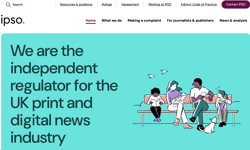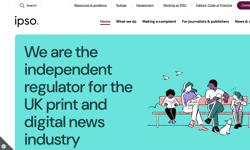
This year has been one of the most disruptive and uncertain in living memory.
The coronavirus has swept the globe leaving a trail of misery and hardship in its wake.
Governments have been grappling with a relentless succession of difficult and complex decisions in order to secure the best – or least worst – outcome for their citizens.
In the news media industry, part of our job has been to help our readers make sense of these unprecedented events.
We have reported on every twist and turn of the local and national lockdowns and kept you up to date with vital public health information.
We have held power to account and robustly challenged the decision-makers on your behalf.
Sometimes, our role has been to seek clarity amid confusion from the authorities, and toxic misinformation about coronavirus spread by bad actors on social media.
It’s a role we take very seriously, and our journalists are better equipped than anyone else to do the job.
And we know that our journalism is making a difference, as audiences for trusted news and information have soared during the crisis.
Independent research shows that the public place great value on news and information from sources they can trust during the pandemic.
Providing the public with trusted and accurate information is at the heart of what we do. But our role goes much further than that.
At the start of the pandemic, the industry came together to tell readers we are #therewithyou, with nearly every daily regional title in the country running the same front page on the same day.
And we haven’t looked back since.
We have run campaigns to raise funds for frontline workers and awareness of the challenging work they do each day to keep us all safe.
We have given our backing to small businesses, the engine of our economy, with free advertising to help them through these challenging times.
We have launched initiatives to help people keep in touch with their families during the national and local lockdowns.
We have run campaigns demanding PPE for all frontline NHS workers, and even flown PPE into the country when supplies were short.
And we have run fundraising appeals for the millions of people who have experienced real hardship as a result of the pandemic.
The local and national news media have been a fundamental part of the country’s response to coronavirus and will continue to be so.
Help needed
But journalism itself has not been immune to the challenges of the pandemic.
Advertising revenues, the lifeblood of independent journalism, have been hammered by the economic downturn leaving us with less money to invest in the journalism we all want to read. At the local level, many news brands are in a perilous position.
We now urgently need Government to intervene with a series of targeted initiatives to help sustain local independent journalism in this country.
And the relationship between the news media and the tech giants needs to be properly reset.
For too long, Google and Facebook have had a free pass at using our journalism on their platforms, making huge profits, whilst contributing comparatively nothing back into the industry.
This problem must be tackled urgently in order for journalism to have a bright future.
This week (5-11 October), is the News Media Association’s Journalism Matters campaign when we celebrate the importance of journalism in our society.
I hope that you will join me by reflecting on all the great things that journalism does for our society and will continue to do for many years to come.










